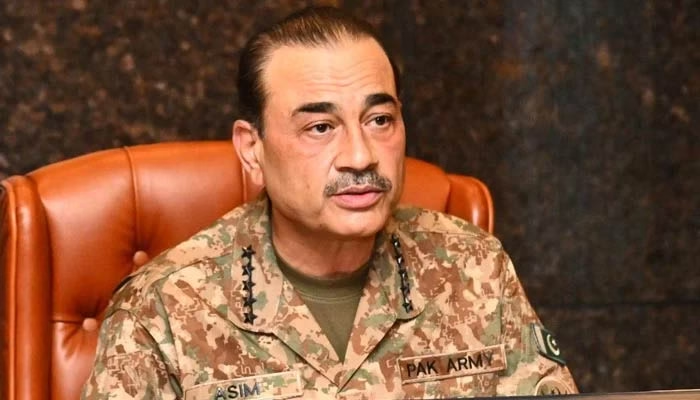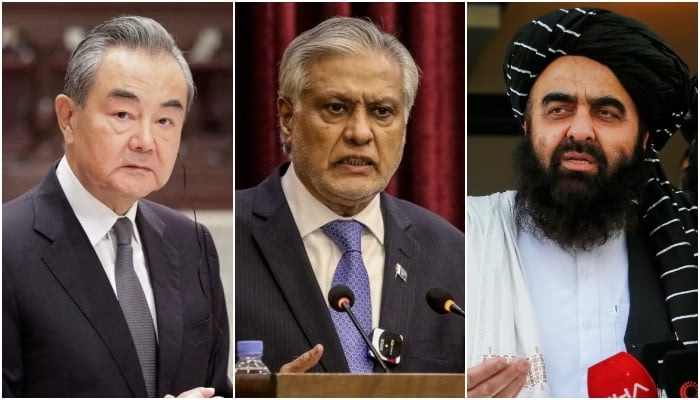The Pakistan Army has once again made its stance clear — any act of Indian aggression will be met with a swift and destructive response. The statement came during the 272nd Corps Commanders’ Conference (CCC) held at the General Headquarters (GHQ) in Rawalpindi, chaired by Chief of Army Staff (COAS) Field Marshal Asim Munir. The meeting underscored Pakistan’s military preparedness and commitment to safeguarding national sovereignty in the face of increasing Indian provocations.
Pakistan Army Issues Strong Warning to India
During the conference, the Pakistan Army leadership expressed grave concern over what it called irresponsible and unwarranted statements made by India’s political and military leaders. These statements, the forum noted, are part of a deliberate strategy to stir war hysteria for political gain. The Army’s top brass stated that any Indian misadventure would be countered decisively, dismantling any illusion of security India believes it enjoys due to geographical distance.
According to the official statement released by the Inter-Services Public Relations (ISPR), Any imaginary new normal will be met with a new normal of swift retributive response.This strong declaration reflects Pakistan’s firm resolve to defend its territorial integrity and respond proportionately to aggression.
Pakistan Army Reviews Counterterrorism and Security Operations
The 272nd CCC also reviewed Pakistan’s internal security situation, ongoing counterterrorism operations, and operational readiness. The forum reaffirmed the Army’s commitment to neutralizing Indian-sponsored terrorist proxies, particularly groups such as Fitna Al-Khawarij and Fitna Al-Hindustan. The participants vowed to eliminate networks undermining national stability and security.
The existing nexus between terror and crime, backed by vested political patronage, will no longer be tolerated,the statement said. The Pakistan Army emphasized that protecting the state’s interests and the safety of its people remains its top priority, regardless of the challenges ahead.
Rising Tensions After India’s Unsubstantiated Claims
The Pakistan Army’s statement follows provocative remarks made by Indian military officials. On October 3, Indian Air Force (IAF) Chief Amar Preet Singh claimed that India shot down five Pakistani fighter jets, including F-16 and JF-17 aircraft, during the brief but intense conflict between the two countries in May this year.
However, the Indian official failed to provide any verifiable evidence to support his claims. Analysts have since labeled the remarks as part of a larger narrative aimed at fueling nationalist sentiment within India ahead of upcoming elections.
May Conflict and Operation Bunyan-um-Marsoos
The May confrontation marked one of the most serious escalations between the two nuclear-armed nations in decades. It reportedly began after a terrorist attack on tourists in Indian Illegally Occupied Jammu and Kashmir’s (IIOJK) Pahalgam area. India accused Pakistan of backing the attack — a claim that Islamabad firmly rejected.
In response to unprovoked Indian attacks that killed innocent civilians, Pakistan launched Operation Bunyan-um-Marsoos, a defensive action that successfully neutralized Indian aggression. According to defense sources, Pakistan downed six Indian Air Force fighter jets, including three Rafale aircraft, and dozens of drones during the 87-hour conflict. The fighting concluded on May 10 following a U.S.-brokered ceasefire agreement.
Strengthening Regional Alliances: Pakistan–Saudi Defence Pact
During the same Corps Commanders’ Conference, the Pakistan Army also welcomed the signing of the Pakistan–Saudi Arabia Strategic Mutual Defence Agreement. The pact was described as a “landmark achievement” aimed at enhancing multi-domain cooperation and regional stability.
The agreement, according to the forum, reflects “shared values, mutual respect, and a joint vision for peace and security across the Middle East and South Asia.” Analysts believe this development could deepen Pakistan’s strategic defense ties and strengthen its role as a regional security partner.
Pakistan Army Reaffirms Support for Kashmir and Palestine
The Pakistan Army reiterated its unwavering support for the people of Kashmir and Palestine. The commanders reaffirmed Pakistan’s commitment to the two-state solution for Palestine based on pre-1967 borders, with Al-Quds Al-Sharif as the Palestinian capital.
Regarding Kashmir, the Army reaffirmed its backing for the legitimate struggle of the Kashmiri people for their right to self-determination, as guaranteed by United Nations Security Council (UNSC) resolutions. The forum emphasized that Pakistan will continue to extend diplomatic, moral, and political support to both causes until justice prevails.
Army Chief Praises Troops’ Readiness and Professionalism
In his closing remarks, COAS Field Marshal Asim Munir praised the resilience, discipline, and operational readiness of the armed forces. He directed all commanders to maintain the highest standards of innovation, vigilance, and preparedness to counter any conventional or hybrid threats.
The Pakistan Army chief reaffirmed the military’s determination to defend the country at all costs, saying that the nation’s security forces remain fully capable of responding to any challenge posed by external or internal adversaries.
The latest statement from the Pakistan Army sends a clear message to India and the international community: Pakistan will not tolerate aggression or destabilizing rhetoric. As regional tensions remain high, Pakistan’s military continues to strengthen its defense posture, enhance strategic partnerships, and safeguard national interests.
With growing cooperation with allies like Saudi Arabia and renewed focus on counterterrorism, the Pakistan Army remains at the forefront of ensuring the country’s security and regional stability — prepared to respond swiftly and decisively to any threat to its sovereignty.



